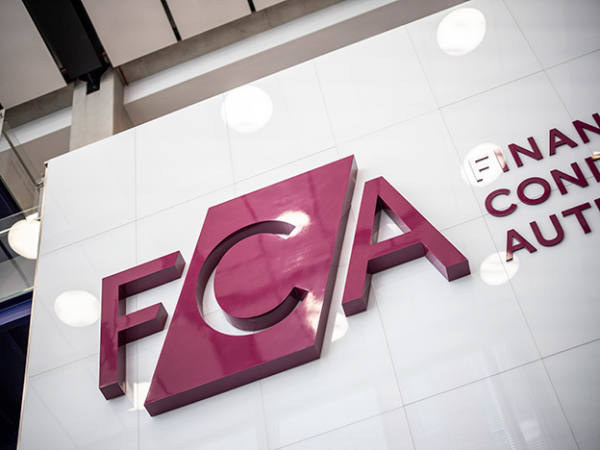Usually, this magazine extols the virtues of companies that make reliable cash flows from in-demand products sold to well-defined markets and run by executives that can manage clearly-forecasted costs. This week, forgive us for putting that hymn sheet aside, while we outline the buy case for an investment bank
- Excellent long-term returns
- Strong demand for dealmaking
- Overseas expansion
- Earnings opacity
- Tough figures to beat
One glance at the past half-decade of income statements for Numis Corporation (NUM) tells the story. While revenues gradually climbed in the four years to 2018, alongside a steady expansion in client numbers, advisory fees and trading activity cratered in the 12 months to September 2019. The reason? In the words of the bank’s co-chief executives Alex Ham and Ross Mitchinson, “persistent political uncertainty, macro-economic factors and subdued, yet volatile markets”.
It feels hard to remember a time before the pandemic, but two years ago, markets were thoroughly rattled by the unknown of Brexit and the possibility of a government led by Jeremy Corbyn. Both of those sliding doors have now shut, but herein lies one of the big problems with high finance: for all their salesmanship and acumen, investment bankers only make money when corporate boardrooms and investors are upbeat and active. When sentiment goes, so does the market for their services.
Combine this with high pay and the fixed costs of running a brokerage in the City, and investor profits quickly drain away. In 2018-19, Numis’s earnings per share dropped two-thirds.
This also helps explain why Andrew Mitchell at broker Edison, currently the only City analyst who covers the stock, describes forecasting a year in advance as “a guess”. In turn, this explains why the table below has no forecast for the 2022 financial year, even though it starts in just two months’ time.
Whether you call this volatility or cyclicality, investment banking isn't a steady sector to invest your capital in. This also means that compounding growth is rarely taken as a given: when famine turns to feast, as it has done over the past 18 months, investors are likely to assume that activity levels will drop off soon enough. Unmoored from reliable sales projections and dependable custom, there is a black-box nature to this type of profit-making.
Long-term value
But here’s a story that is equally true of Numis shares: they have been an excellent investment over the past decade. On a headline basis, the stock has more than tripled in value, compared to a 33 per cent return from the FTSE All-Share index. Factor in reinvested dividends – the so-called total return – and the shares’ return has averaged more than 17 per cent a year over 10 years, outperforming the All-Share by double digits annually.
| 10-year comparison | ||||
| Share price change (%) | CAGR (%) | Total Return (%) | CAGR (%) | |
| Numis Corporation Plc | 208.76 | 11.93 | 400.57 | 17.48 |
| FTSE All-Share | 33.02 | 2.89 | 90.35 | 6.65 |
| Outperformance | +175.74 | +9.04 | +310.23 | +10.83 |
| Source: FactSet | ||||
Put simply, shareholders have been rewarded for taking a long-term view on the company and its ability to win a good share of market activity.
The roots of this success lie partly in its market focus. Unlike a full-scale investment bank, Numis does not extend credit to its corporate clients, with all the risk management, losses and operational illiquidity this can bring. Neither does it engage in much proprietary trading, whereby a bank uses its own balance sheet to fund trading strategies. At the end of March, the group’s investment portfolio stood at just £16.2m, or less than 10 per cent of net assets.
Boil it down, and Numis is really a straightforward business. The bulk of its revenue is made in its investment banking division, which generates fees from capital markets work on initial public offerings, mergers and acquisitions and equity fundraisings. Propelled by a string of high-profile listing mandates in the first half of the year, revenue here almost tripled to £63.3m, with a further £12.4m coming from advisory work and £6.3m from client retainers.
The firm's equities arm, which makes money from share trading on behalf of clients, saw revenues climb 27 per cent to £33.4m in the same period. The division is also home to a research team, which markets broker notes and reports on companies (including its own corporate clients) to investors. The bank does not break out divisional profit, so it’s not possible to tell whether research is loss-making – as it is for many large banks. But the overall equities division was earlier this year described by management as “critical to our recent success in winning IPO mandates”, suggesting it is a natural complement to advisory work.
A trading update, which landed a fortnight ago, added to the encouragement. Advisory mandates in the second half of its financial year have included the listings of bathrooms specialist Victoria Plumbing (VIC) and maternity fashion label Seraphine (BUMP), the takeover of St Modwen Properties (SMP) and a further 11 publicly-disclosed acquisitions by listed clients. Importantly, from the perspective of ongoing mandates, Numis’s clients appear to be acquiring smaller companies rather than simply being bought.
Though the markets are not quite as red-hot as they were at the start of 2021, year-to-date deal volumes and average deal fees are reportedly “materially ahead of the comparative period”, adding to confidence that full-year revenues of £200m are achievable. Management also thinks an already strengthened deal pipeline can grow further with expansion into private deal-making and equity capital markets work outside the City, including Europe and New York.
Measured growth
The latter push includes a plan to establish a Dublin office over the next year, which would have the effect of restoring “certain EU institutional client relationships” lost in the Brexit handover, and allow the investment bank to passport its services into the continent, where it has established relationships with a network of growth-oriented companies and investors.
This will require an as-yet undisclosed investment, and little more for ordinary shareholders to go on than confidence that there is business to be won.
Sentiment, as we have noted, is important in this sector. But recent history provides few reasons to doubt Numis’s returns and the management of levers it can control. Indeed, a combination of share buybacks, high-margin fees and a lean asset base have kept the return on equity hovering around the 20 per cent mark (see table) over the last six years. This year, it should hit 25 per cent.
| £m | FY15 | FY16 | FY17 | FY18 | FY19 | FY20 | FY21e | 5Yr CAGR |
| EBITDA | 27.3 | 34.2 | 39.7 | 32.6 | 13.1 | 41.3 | 67.3 | 8.6% |
| EBIT | 26.3 | 32.9 | 38.4 | 31.4 | 11.9 | 38.1 | 61.9 | 7.7% |
| Net Inc | 21.5 | 26.4 | 30.4 | 26.7 | 9.3 | 31.4 | 48.1 | 7.8% |
| Shares Out (Dil) | 117.6 | 118.0 | 117.2 | 115.8 | 114.9 | 117.3 | - | -0.1% |
| Book PS | 1.02 | 1.14 | 1.25 | 1.35 | 1.32 | 1.51 | 1.67 | 8.2% |
| Cash & ST Inv | 118.0 | 141.4 | 151.9 | 119.6 | 98.8 | 143.4 | - | 4.0% |
| EBITDA Margin (%) | 28.3 | 29.3 | 29.7 | 23.7 | 11.9 | 26.6 | 32.4 | 24.2% |
| EBIT Margin (%) | 27.3 | 28.3 | 28.7 | 22.8 | 10.9 | 24.6 | 29.8 | 23.0% |
| Net Margin (%) | 22.3 | 22.7 | 22.7 | 19.4 | 8.5 | 20.2 | 23.1 | 18.7% |
| ROA (%) | 6.0 | 8.7 | 8.3 | 5.6 | 2.1 | 7.3 | 7.5 | 6.4% |
| ROE (%) | 19.1 | 21.6 | 23.1 | 19.3 | 6.6 | 21.2 | 25.1 | 18.4% |
| Source: FactSet, company | ||||||||
For comparison, low interest rates, muddled strategies and years of regulatory wrist-slapping have left the UK high street banks struggling to achieve even half that return. A high-teens return on equity is also often cited as a mark of the quality of US giant JP Morgan (US:JPM), and a justification for its shares trading on two times’ book value.
Numis, with its narrower focus and smaller reach, is hardly an apples-to-apples peer of Wall Street. So long as it lacks a lending arm, earnings visibility will always be poor. The answer to this is for the bank to stay close to its clients, so that fees can be collected whenever money needs to be raised, a trade needs to be done, or an acquisition is identified.
Year to year, this will make for lumpy profits, and investors can pretty much forget about forward guidance. But even in 2019, when its markets all but dried up for several months of the year, it was profitable. Investment bankers are always going to hustle. And they generally tend to do well out of it.
| Numis Corporation (NUM) | |||||
| ORD PRICE: | 355p | MARKET VALUE: | £383m | ||
| TOUCH: | 358-362p | 12-MONTH HIGH: | 420p | LOW: | 280p |
| FORWARD DIVIDEND YIELD: | 3.4% | FORWARD PE RATIO: | 8 | ||
| NET ASSET VALUE: | 163p | NET CASH: | £57.8m† | ||
| Year to 30 Sep | Turnover (£m) | Pre-tax profit (£m) | Earnings per share (p) | Dividend per share (p) |
| 2018 | 136 | 31.6 | 25.1 | 12.0 |
| 2019 | 112 | 12.4 | 8.8 | 12.0 |
| 2020 | 155 | 37.1 | 29.9 | 12.0 |
| 2021* | 208 | 62.0 | 45.9 | 12.0 |
| % change | +34 | +67 | +54 | - |
| BETA: | 0.5 | |||
| † Includes lease liabilities of £39.8m | ||||
| *Edison forecasts, adjusted profit and EPS | ||||









